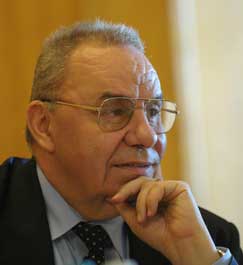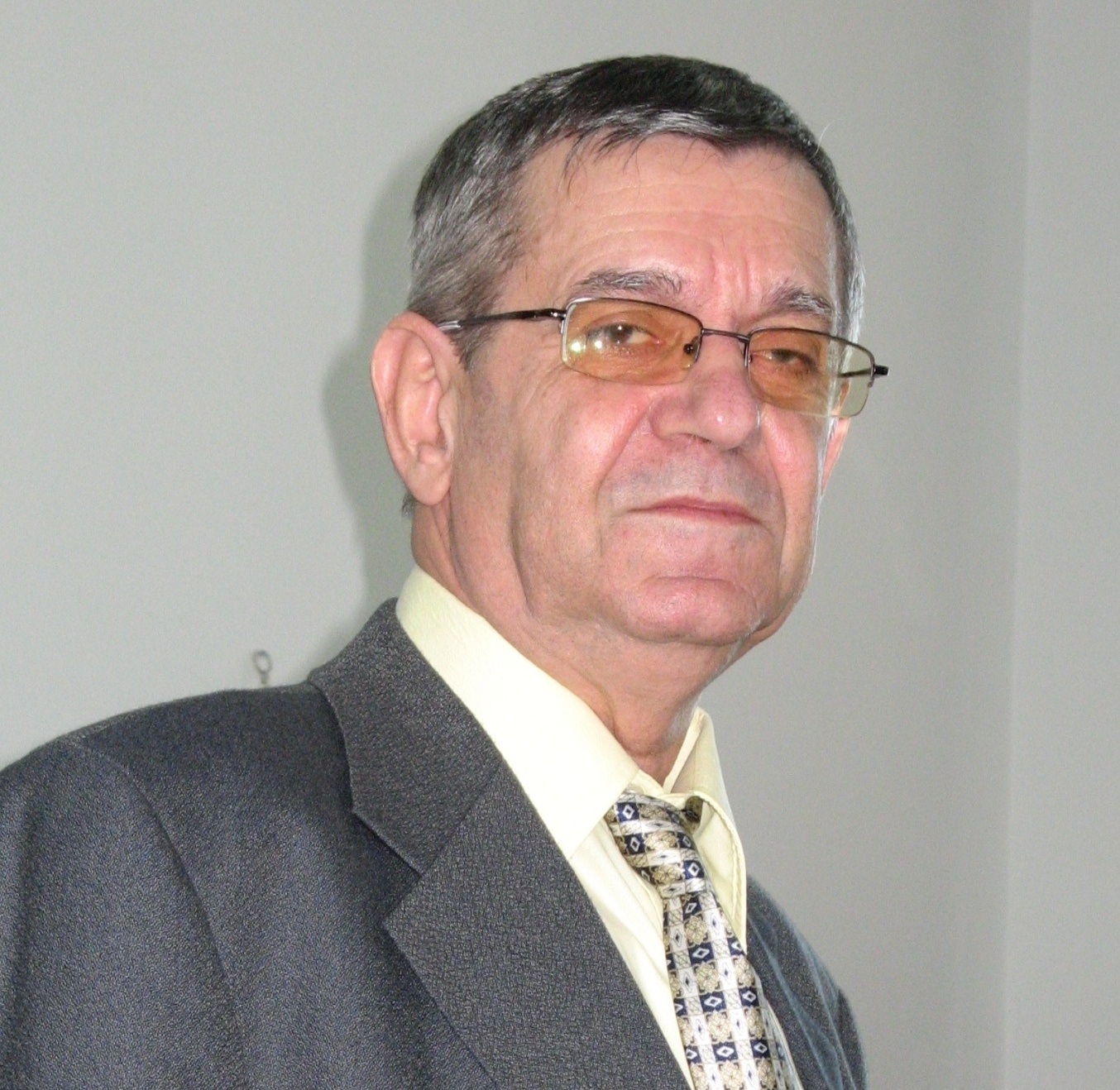The three journalists released by the Iraqi terrorists ten days ago called yesterday a press-conference which rather obscured than clarified issues.
|
|
|
|
click on image for slide show
|

|
The press conference yesterday showed a deep rift between the journalists asking the questions and those answering them |
The very few new details that emerged were that Ohanesian was beaten up by terrorists, at one point, and that no military force was used for their release [as Romanian President Traian Basescu led us to believe], as they were abandoned on a Baghdad street.
Ion was the one to volunteer the information that Ohanesian was beaten up and threatened with guns; the latter confirmed, though in a previous interview to his newspaper "Romania libera", he declined to address the subject.
This incident occurred when Miscoci was forced to wear the orange overalls which signaled [to the others that] he was about to be executed.
Ohanesian explained that he was the only one subjected to the violent treatment since "he did not obey certain rules." None of the three journalists, however, detailed what the rules were.
"The guards were happy for us, that we will be released," said Ion, mentioning the small gifts the guards gave them - a toilet paper roll, in her case. In his previous, separate, interview with "Romania libera" Ohanesian mentioned the small good-bye tokens too. Ion further stated that she could not understand the behavior of the people that kept them hostage.
So, freedom came with the announcement "go Romania" and with them being discarded on a Baghdad street, where unnamed authorities collected them from. Ion said that at no time were they in the custody of American authorities, but she did not clarify if the friendly forces collecting them were Arabs or Romanians.
It is certain though that the three journalists and their translator, Mohamad Munaf, spent their night in the Romanian Embassy.
The Romanians were then debriefed and saw nothing wrong in the fact that Munaf left to meet American authorities for the same procedure, since he held American citizenship too.
Ion also said that Munaf organized the journalistsâ trip to Iraq, and that Omar Hayssam was the one to connect her with Munaf.
"Omar told me that a friend of his wants to go to Iraq, [accompanied by journalists]. He asked me if I know someone who would like the assignment and I told him that I myself was interested," explained Ion.
Then she met Munaf, "who looked like a reliable person" to her, and together they set up the details of the trip.
Ohanesian said he met Munaf via one of his work-mates, but he refused to give his name.
Munaf paid for the plain tickets, while journalists paid for their meals. As for the hotel rooms, Ion said that they had the money to pay for, but did not know who paid them in the end.
Munaf did not stay in the same hotel the Romanians did, but with his family in Baghdad, and often had a different schedule than they did.
On the evening of 28 March, when the kidnapping occurred, the four of them were coming back to the hotel from a documenting trip for a story Ohanesian was planning.
Their car was blocked by a big white vehicle on a narrow street in Baghdad, and several people - Ion put their number at around ten - pulled them out of their car. Miscoci and Ohanesian were locked in the trunk, while Ion was thrown on the back seat of the same car and told to lie down. During this time Ion managed to send two distress SMS messages. When she received a reply message from the newsroom in Bucharest the phone-ring sent ballistic the kidnappers, which then took the mobile phone from her.
That was Miscociâs cell, which both Miscoci and Ion used. Later on Ionâs own cell was taken by kidnappers, when her boyfriend tried to contact her.
The first location the four of them were taken to was a dark room, in a regular home.
But five days later, on 1 April, they were moved into the basement of a different location, where conditions were less favorable. At some point they ran even the risk of suffocation.
The five video tapes and one audio tape [released during their captivity] were recorded in a room on top of the basement they were in.
Munaf was part of the group all the time, the journalists said, since he was with them at the time of both their kidnapping and their release.
However, they admitted they could not be sure of that, since they were blindfolded and not allowed to speak.
Ion said that she cannot comprehend scenarios which speculate that they themselves agreed to their own kidnapping.
Yesterdayâs media reported that Munafâs brother and brother-in-law stated in Baghdad that the three journalists were aware of the plan for their kidnapping and agreed to it.
Ion said that no sane person would agree to such a thing, hence she waited for the official investigation to bring light into the matter.
Furthermore, the three journalists begged their Romanian colleagues to not speculate in the days to come since lives of other people and hostages in Iraq could be lost.
They were confident that public opinion will find out the truth in a shorter while than expected and way earlier than the 50-year limit for classified files to be opened.
Translation: ANCA PADURARU








